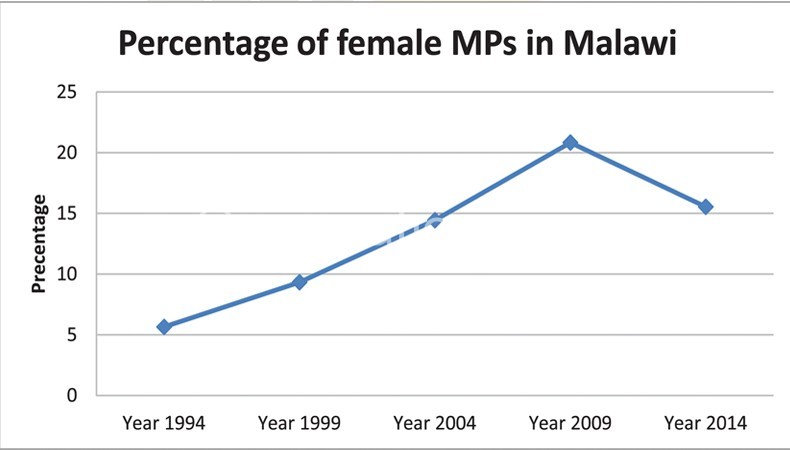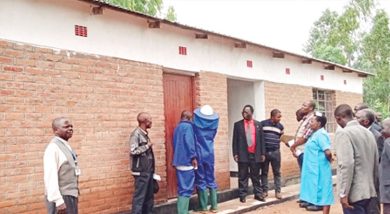Women flop in elections
The number of women that have made it to Parliament in the May 20 Tripartite Elections has dropped compared to the 2009 general elections.
This is despite NGO-Gender Coordinating Network (NGO-GCN) calling on the electorate to vote for women during the election.
 Official results announced by Malawi Electoral Commission (MEC) show that 32 women out of 261 who vied for parliamentary seats won. This is in contrast to 2009 when 43 women became members of Parliament (MPs), representing a drop of 26 percent.
Official results announced by Malawi Electoral Commission (MEC) show that 32 women out of 261 who vied for parliamentary seats won. This is in contrast to 2009 when 43 women became members of Parliament (MPs), representing a drop of 26 percent.
Funded by the Norwegian Embassy in Lilongwe, NGO-GCN embarked on the 50-50 campaign to increase the number of female MPs from the previous 43.
In the Local Government Elections, there were 462 wards in total but the contest took place in 457 of them and only 56 women won compared to 401 men. The number of females who contested for the wards was 417.
NGO-GCN chairperson Emma Kaliya said she had no real reason for the poor performance by women.
Said Kaliya: “Malawian voters decided not to vote for women and there is nothing we can do. Again, there is high competition these days because people believe that going to Parliament is part of employment.”
But one of the female candidates who contested and lost in Chitipa Central Constituency, Faustace Chirwa, cited a number of reasons, among them the political party that sponsored the female candidate’s ticket.
She said: “For example, I contested in Chitipa Central under the United Democratic Front [UDF]. You can’t win under UDF in Chitipa.”
Chirwa also said the cultural mentality that women are second citizens; hence, should not be entrusted with leadership positions.
Said Chirwa: “Culture has been affecting me politically. I am from Chitipa, but I married in Nkhata Bay. When I wanted to stand in Nkhata Bay, they told me that it was not my home. But when I went to Chitipa, I was told that Nkhata Bay was my home because my husband paid lobola.”
Political analyst Boniface Dulani agreed with Chirwa that cultural beliefs that women cannot be in leadership positions is one of the factors affecting them.
He also mentioned lack of resources on the part of women and the tendency by political parties to field more men than women as other factors.





With women like the JBs,the Kabwiras as arrogant as they are, one cannot expect anything better from them. They are a shame to Malawi.
Perhaps you are being too harsh on Kabwila (she is new in parliament; her conduct as a Lecturer/leader at Chanco has been outstanding); lets wait and see how she performs in parliament; but I agree with you on JB – she is the main reason women have performed badly! People just generalised her performance to all women